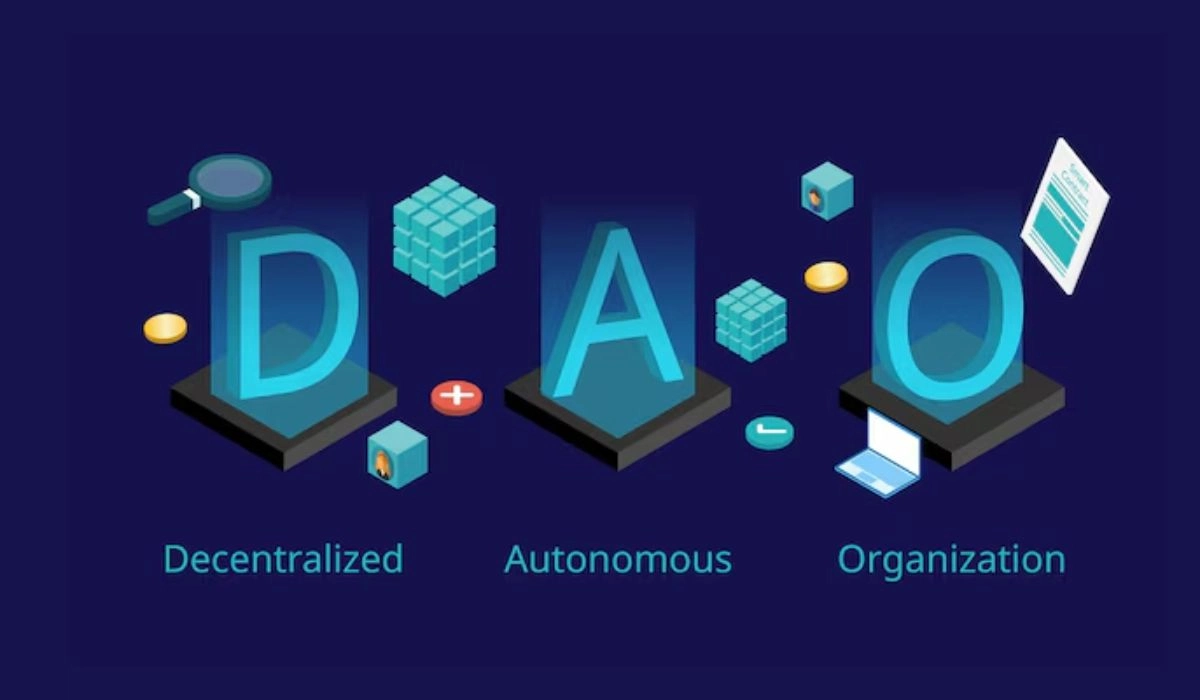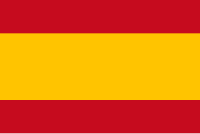Decentralized Autonomous Organizations (DAOs), often described as crypto-cooperative are developed to minimize human interference and associated hierarchies by utilizing technological advancements like smart contracts. This innovative approach gives participants direct control to participate in decision-making processes. This blockchain-driven innovation empowers future communities to manage projects, policies, and funds to improve transparency by eliminating the intervention of intermediaries. DAO extends its function across industries from gaming to corporate companies, to bring about collective ownership and efficient governance. This article helps you understand what DAO is, its rise, its working mechanism, and how it transforms decision-making and management in the future.

What are Decentralized Autonomous Organizations (DAOs)?
DAO is a blockchain-based organization that is run by code or algorithm that operates with smart contracts. The self-executing contracts facilitate decentralization, allowing all parties to engage in the decision-making process with transparency, making the system immune to manipulation by intermediaries and the company self-sustainable. In simple terms, DAO is an online community that executes decisions based on codes executed by smart contracts on a blockchain. The smart contracts execute the codes automatically to ensure transparency.
DAO is a technology that emerged after the rise of blockchain technology along with the rising demand for a decentralized platform. The introduction of Bitcoin in 2009 allowed a decentralization of financial transactions. Later in 2015 Ethereum with its self-executing contracts, ‘Smart Contracts,’ to automate its functions.
The first DAO was launched in 2016 which allowed participants to invest and vote for decisions. With the emergence of Decentralized Finance in 2019, platforms like MakerDAO implemented DeFi (Decentralized Finance) in real-world applications. It gained traction across other sectors like gaming and NFT in projects like Uniswap and Gitcoin. The success of DAO, helped it to expand its services to help governing bodies to automate and improve its efficiency.
How DAOs work?
For any DAO to function, Smart Contracts, Tokens, and Blockchain technology are essential. These components ensure that DAO minimizes red-tapism and bureaucratic delays to enhance efficiency and trust among its members.
- Smart Contracts: Smart code regulates DAO by coding rules to automate its working. The codes are automatically executed if pre-set conditions are met. This reduces the need for human intervention to facilitate decision-making, fund distribution, and managing processes. Anything that is not coded will fail to function.
- Tokens: Tokens are used to represent their power and hold in the DAO. Users who hold more tokens will have more voting power and influence over decisions.
- Blockchain technology: DAO runs on the blockchain. This means that all activities are recorded on an immutable, transparent, and secured system.
How DAOs Revolutionize Governance?
DAOs replace the traditional centralized governance with consensus-oriented decision-making to ensure transparency and efficiency. Automation in governance reduces the time lags to enforce decisions and execute them by eliminating the requirement of intermediaries. This eliminates lengthy procedures such as manual approvals, execution, and inefficiencies by enabling its members to propose, vote, and implement changes in real time. If the rules are subject to any changes, the codes are changed. Since all activities are recorded on the blockchain, it eliminates the risk of loss of data. With DAO, governance will become more transparent and efficient.
Uses and Applications of DAO
DAO and its versatility allow its adoption across several industries such as
Governance
DAO simplifies the process of governance and decision-making by allowing token holders to vote on the changes proposed. The value of the vote is decided by the number of tokens they hold. It simply means, that the more tokens you hold, the more voting power.
This feature can be utilized by startups, businesses, and government bodies to decide changes in plans, projects, fund allocation, expansion plans, and hiring. Decisions are made based on voting where all employees, shareholders, and investors can participate. The value of the votes may however vary.
Finance and DeFi
DAO helps finance institutions to function without the need for intermediaries. It streamlines lending and borrowing by allowing borrowers to earn interest on their assets directly from lenders. It allows users to manage liquidity and investment of funds. While considering regulations, it allows its community to vote on monetary policies such as interest rates, collateral rates, liquidity ratios, and more.
Content creation
DAO enables content creators to make engaging content where users become eligible for community rewards. Users can use DAO to understand their community, understand what to create, and circulate for rewards such as likes, votes, and engagement. The response and feedback can be analyzed to bring improvements. Furthermore, it facilitates collaboration and paid promotions automatically.
Energy Projects
Integration of DAO to IoT (Internet of Things), energy utilizing, and monitoring devices to analyze the pricing, energy usage, and utilization of energy. DAO promotes the usage of renewable energy for production, as an effort to reduce the dependence on traditional sources and minimize its negative impacts. DAO supports P2P energy trading, direct purchase of energy, and storage through decentralized platforms.
Supply Chain
DAO increases the transparency and efficiency of supply chain management by allowing its users to track and verify the movement of goods from source to customers without the presence and need for intermediaries and manual record keeping. Smart supply chain management allows automated payment, execution of contracts, product tracking, delivery, and quality control thereby enabling quick and seamless movement of goods.
What are the benefits of using DAO?
Apart from leveraging technology, it gives autonomy to different sectors in the industry. Some of the benefits of DAO are
- Transparency
- Efficient governance
- Shared and fractional ownership
- Improved security
- Flexibility
- Quick implementation
What are the challenges faced by DAO?
Like any other technological advancement, DAO also has some risks and challenges to be considered.
- Regulatory Uncertainty: As DAO is a new technology, there are several ambiguities associated with it. Government bodies are still figuring out measures to regulate the existing ambiguities.
- Token Inequality: Users are given voting rights based on the number and value of the tokens they hold. This may result in centralization, where the majority of token holders can decide the rules.
- Security Risks: Smart Contracts have been subject to vulnerabilities, resulting in financial losses. This has raised concerns within the community.
Conclusion
Decentralized Autonomous Organizations (DAOs) work on blockchain technology to execute transactions and governance efficiently. It plays a significant role in revolutionizing industries by implementing technological advancements such as smart contracts, tokens, and blockchain technology. However, DAO offers transparency, accountability, and participation of its members to bring about innovations across various sectors such as Finance, governance, supply chain, energy projects, and more. With the adoption of DAO, users expect more innovation and immense improvements in its functionality.






